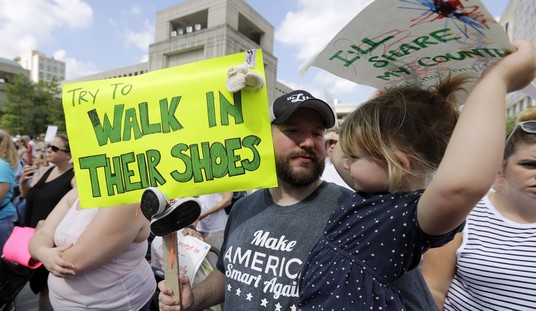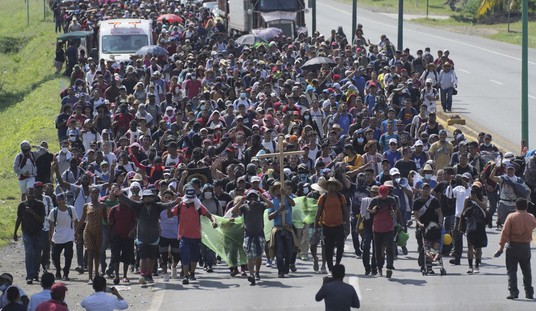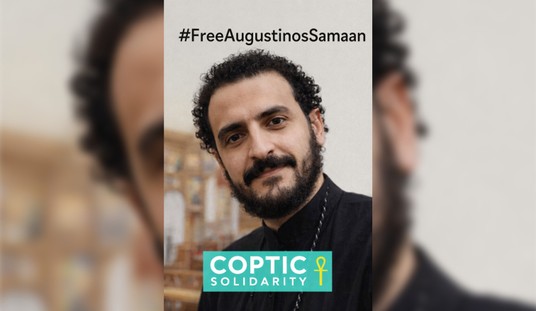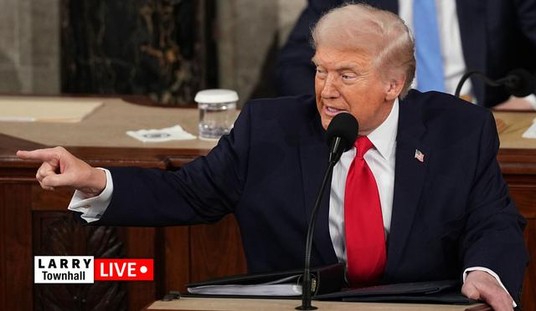Brave mainstream media journalists are finally doing what they always should be doing: report the story and let readers and viewers decide the truth for themselves. Today, ABC News reporter Jonathan Karl released their top story — the headline says it all: “Exclusive: Benghazi Talking Points Underwent 12 Revisions, Scrubbed of Terror Reference.”
Karl obtained from his sources 12 different versions of the talking points, which he writes “show they were extensively edited as they evolved from the drafts first written entirely by the CIA to the final version distributed to Congress and to U.S. Ambassador to the U.N. Susan Rice before she appeared on five talk shows.”
Reviewing White House e-mails, Karl reports that “the edits were made with extensive input from the States Department” and, most importantly, that there were discussions “that references to the Al Qaeda-affiliated group Ansar al-Sharia be deleted as well as CIA warnings about terrorist threats in Benghazi in the months preceding the attack.”
Karl reveals clearly how White House press chief Jay Carney lied to the media at his press conference. Karl writes:
That would appear to directly contradict what White House Press Secretary Jay Carney said about the talking points in November.
“Those talking points originated from the intelligence community. They reflect the IC’s best assessments of what they thought had happened,” Carney told reporters at the White House press briefing on November 28, 2012. “The White House and the State Department have made clear that the single adjustment that was made to those talking points by either of those two institutions were changing the word ‘consulate’ to ‘diplomatic facility’ because ‘consulate’ was inaccurate.”
Next, Karl presents the most shocking e-mail released so far: one from State Department spokesperson Victoria Nuland, who lets others in her shop know why the truth must be kept under wraps. Karl writes:
Summaries of White House and State Department emails — some of which were first published by Stephen Hayes of the Weekly Standard — show that the State Department had extensive input into the editing of the talking points.
State Department spokesman Victoria Nuland raised specific objections to this paragraph drafted by the CIA in its earlier versions of the talking points:
“The Agency has produced numerous pieces on the threat of extremists linked to al-Qa’ida in Benghazi and eastern Libya. These noted that, since April, there have been at least five other attacks against foreign interests in Benghazi by unidentified assailants, including the June attack against the British Ambassador’s convoy. We cannot rule out the individuals has previously surveilled the U.S. facilities, also contributing to the efficacy of the attacks.”
In an email to officials at the White House and the intelligence agencies, State Department spokesman Victoria Nuland took issue with including that information because it “could be abused by members [of Congress] to beat up the State Department for not paying attention to warnings, so why would we want to feed that either? Concerned …”
The paragraph was entirely deleted. (my emphasis)
Later, Nuland also told others not to name any terrorist groups, as the CIA reports had done, because “we don’t want to prejudice the investigation.” How, one wonders, is letting all the facts be presented prejudicial in any way to finding out what happened? When changes were made that did not satisfy her, Nuland referred to the latest version as not satisfying “my building’s leadership.”
Who ordered Nuland to excise these in order to protect the State Department’s reputation? How high did it go? Was it Hillary’s top aide, or the secretary of State herself? What individual in “leadership” gave Nuland her arguments?
It is also brave of Karl to acknowledge the contribution to honest journalism of Stephen Hayes of The Weekly Standard. This is the first time to my recollection that a major TV network has praised the conservative journal and directly cited its top reporter.
So, Victoria Nuland especially has much explaining to do, as does Jay Carney. When Carney told the press that “the CIA drafted these talking points and redrafted” them, and that only “stylistic and nonsubstantive” changes were made, Carney was obviously lying. The final talking points were drafted after the White House meeting, at which the agency was clearly ordered to remove all of its original points that mentioned al-Qaeda affiliates.
In an update on the ABC site, Nuland tried to defend her role, and an unnamed source explained the following to Karl:
A source familiar with the White House emails on the Benghazi talking point revisions say that State Department spokesman Victoria Nuland was raising two concerns about the CIA’s first version of talking points, which were going to be sent to Congress: 1) The talking points went further than what she was allowed to say about the attack during her state department briefings; and, 2) she believed the CIA was attempting to exonerate itself at the State Department’s expense by suggesting CIA warnings about the security situation were ignored.
In one email, Nuland asked, why are we suggest[ing] Congress “start making assertions to the media [about the al-Qaeda connection] that we ourselves are not making because we don’t want to prejudice the investigation?”
One other point: The significant edits — deleting references to al Qaeda and the CIA’s warnings — came after a White House meeting on the Saturday before Ambassador Susan Rice appeared on five Sunday shows. Nuland, a 30-year foreign service veteran who has served under Democratic and Republican Secretaries of State, was not at that meeting.
This new and highly unsatisfactory “explanation” reveals only how important it is to now subpoena those at the White House meeting, including those who were not there like Nuland, as well as Jay Carney.
Having ran a solid report the other day, despite taking out a main portion of the first version of its story, the New York Times editors weighed in today on what they make of it. In an editorial they titled “The Republicans’ Benghazi Obsession,” the editors wrote that the hearings “have long given way to conspiracy-mongering and a relentless effort to discredit President Obama and former Secretary of State Hillary Rodham Clinton.” The editors conclude: “The hearing did not prove anything like an administration cover-up or other hysterical allegations of crimes equal to Watergate that some Republicans, such as Representative Steve King and Senator Lindsey Graham, have alleged.” They would prefer, as they write, that Americans leave well enough alone and stop at the weak Mullen committee report that reached its conclusions before all the facts were out.
With the media finally taking a hard look, expect more sighs of disappointment from the editors of the New York Times.
UPDATE:
In yet another change of heart, the BBC North American editor now says “hard evidence” has led him to reevaluate Benghazi. He writes:
This is the first hard evidence that the state department did ask for changes to the CIA’s original assessment.
Specifically, they wanted references to previous warnings deleted and this sentence removed: “We do know that Islamic extremists with ties to al-Qa’ida participated in the attack.”
There’s little doubt in my mind that this will haunt Hillary Clinton if she decides to run for president, unless she executes some pretty fancy footwork.
State department spokesperson Victoria Nuland is directly implicated, and the fingerprints of senior White House aides Ben Rhodes and Jay Carney are there as well.
He then makes this startling admission:
In the interests of full disclosure I have to say I have not in the past been persuaded that allegations of a cover-up were a big deal. It seemed to me a partisan attack based on very little.
So facts do make a difference to those who are honest, and who do not write journalistic entries according to their ideology. If BBC editor Mark Mardell can see reality, so can others.









Join the conversation as a VIP Member